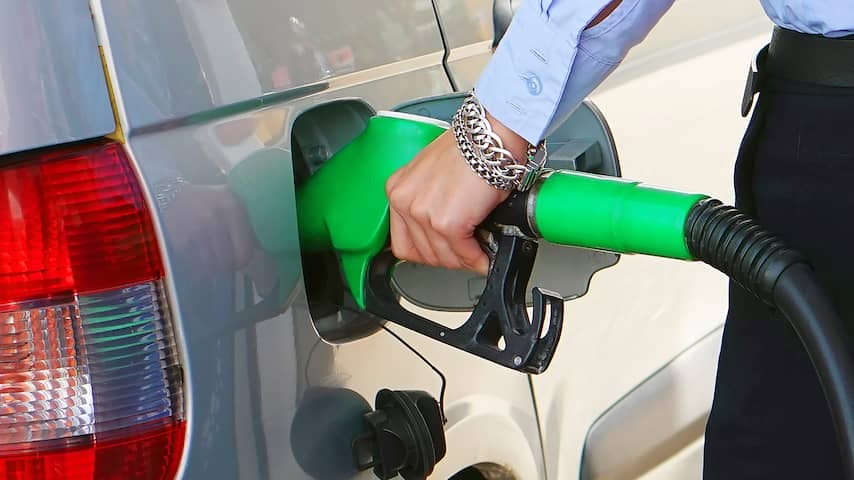
Ondanks de wereldwijde onrust blijft het Nederlandse beleid de grootste bedreiging voor de prijzen aan de pomp. De prijzen stegen vorige maand door de oorlog in Iran en dalen nu alweer, doordat OPEC-landen een groter dan verwachte verhoging van de olieproductie aankondigden.
“Aan de pomp zal de benzineprijs deze zomer zo’n beetje blijven schommelen rond het huidige niveau”, verwacht directeur Paul van Selms van UnitedConsumers. “Als de accijnsverlaging volgend jaar wordt afgeschaft, kunnen we onze borst natmaken.”
Op 1 april 2022 verlaagde de overheid de accijns op brandstof, om de destijds sterk gestegen prijzen te dempen. Dat was bedoeld als een tijdelijke maatregel en scheelt een slok op een borrel. Voor benzine gaat het om 17,3 cent per liter. “Sowieso wordt de prijs aan de pomp in Nederland voor twee derde door de overheid bepaald”, zegt de marktkenner.
Dat gaat niet alleen om accijns, maar ook om btw. Als de maatregel komt te vervallen, kan een liter benzine zo 25 cent duurder worden. Het kabinet zou met Prinsjesdag bekendmaken of de verlaging al dan niet zou worden verlengd. Het feit dat het kabinet nu demissionair is, heeft geen invloed op het besluit op zich.
Een woordvoerder van het ministerie van Financiën zegt dat de verlaging “in principe per 1 januari 2026 stopt”. “Daar moet hoe dan ook een besluit over genomen worden. De regeling stopt of wordt verlengd, wat tot dusver steeds is gebeurd.”
Nederlandse overheid heeft meer invloed dan OPEC
Van Selms van UnitedConsumers vraagt zich dan ook af wat de invloed van de aanstaande verkiezingen daarop zal zijn. “Het gaat echt om een relatief groot bedrag.” De adviesprijs van benzine van 2,12 euro zoals die nu is, bestaat voor 17 procent uit btw en voor 37 procent uit accijns.
Wat de overheid met de accijns doet, is dan ook van meer invloed op de prijs dan wat bijvoorbeeld OPEC doet. De invloed van het oliekartel is sowieso tanende. “Ze zijn onderling te verdeeld”, zegt Van Selms. De landen hebben allemaal zo hun eigen problemen, problemen die geld kosten.
“Iran zal nu als een dolle olie aan het oppompen zijn.” Die olie moet wel verkocht worden. De VS doet met schalieolie een aardige duit in het zakje. Door de oliekraan verder open te draaien pakt Saoedi-Arabië nu weer wat marktaandeel terug. “Vroeger kwam bijna alles daarvandaan, maar dat is allang niet meer zo”, zegt Van Selms.
Despite global unrest, Dutch policy remains the biggest threat to prices at the pump. Prices rose last month due to the war in Iran and are now falling again as OPEC countries announced a larger-than-expected increase in oil production.
“At the pump, the gasoline price will fluctuate around the current level this summer,” expects director Paul van Selms of UnitedConsumers. “If the excise duty reduction is abolished next year, we can brace ourselves.”
On April 1, 2022, the government reduced the excise duty on fuel to cushion the sharply increased prices at the time. This was intended as a temporary measure and makes a difference. For gasoline, it concerns 17.3 cents per liter. “In any case, two-thirds of the price at the pump in the Netherlands is determined by the government,” says the market expert.
This not only concerns excise duties, but also VAT. If the measure expires, a liter of gasoline could become 25 cents more expensive. The cabinet would announce on Budget Day whether or not the reduction would be extended. The fact that the cabinet is now demissionary does not affect the decision itself.
A spokesperson for the Ministry of Finance says that the reduction “in principle ends on January 1, 2026”. “A decision must be made about that anyway. The scheme will stop or be extended, which has always happened so far.”
Dutch government has more influence than OPEC
Van Selms of UnitedConsumers also wonders what influence the upcoming elections will have on this. “It really is a relatively large amount.” The recommended price of gasoline of 2.12 euros as it is now consists of 17 percent VAT and 37 percent excise duties.
What the government does with excise duties therefore has more influence on the price than what OPEC does, for example. The influence of the oil cartel is waning anyway. “They are too divided among themselves,” says Van Selms. The countries all have their own problems, problems that cost money.
“Iran will now be pumping oil like crazy.” That oil has to be sold. The US is making a good contribution with shale oil. By further opening the oil tap, Saudi Arabia is now regaining some market share. “In the past, almost everything came from there, but that is no longer the case,” says Van Selms.